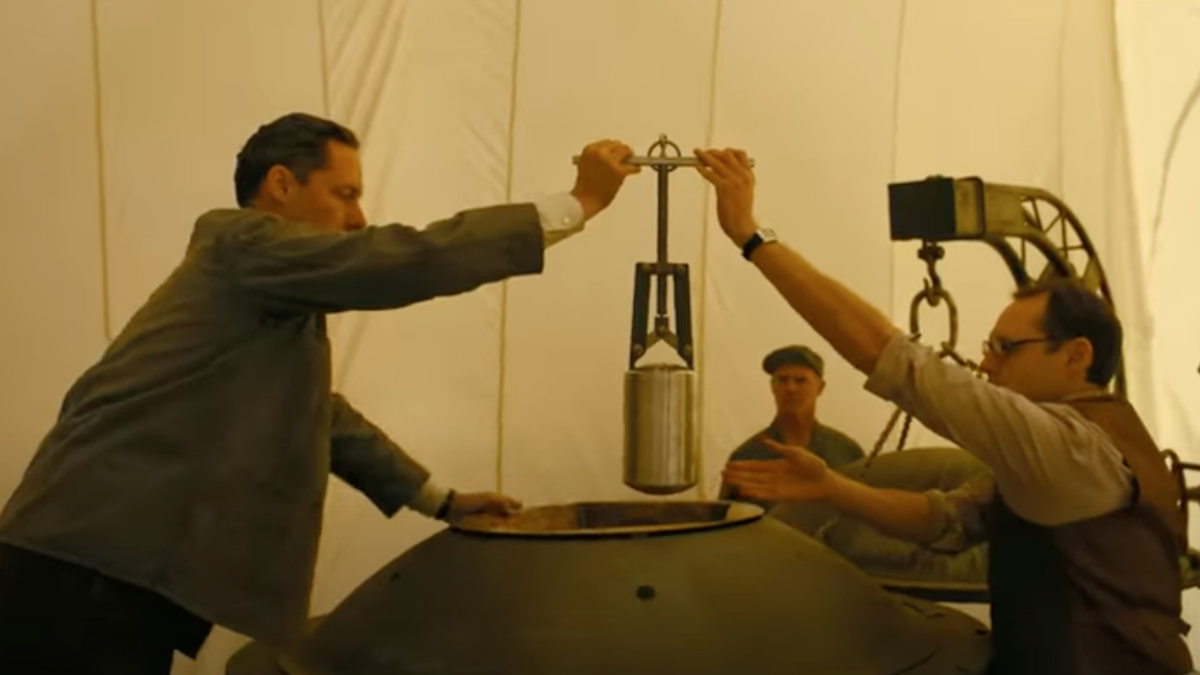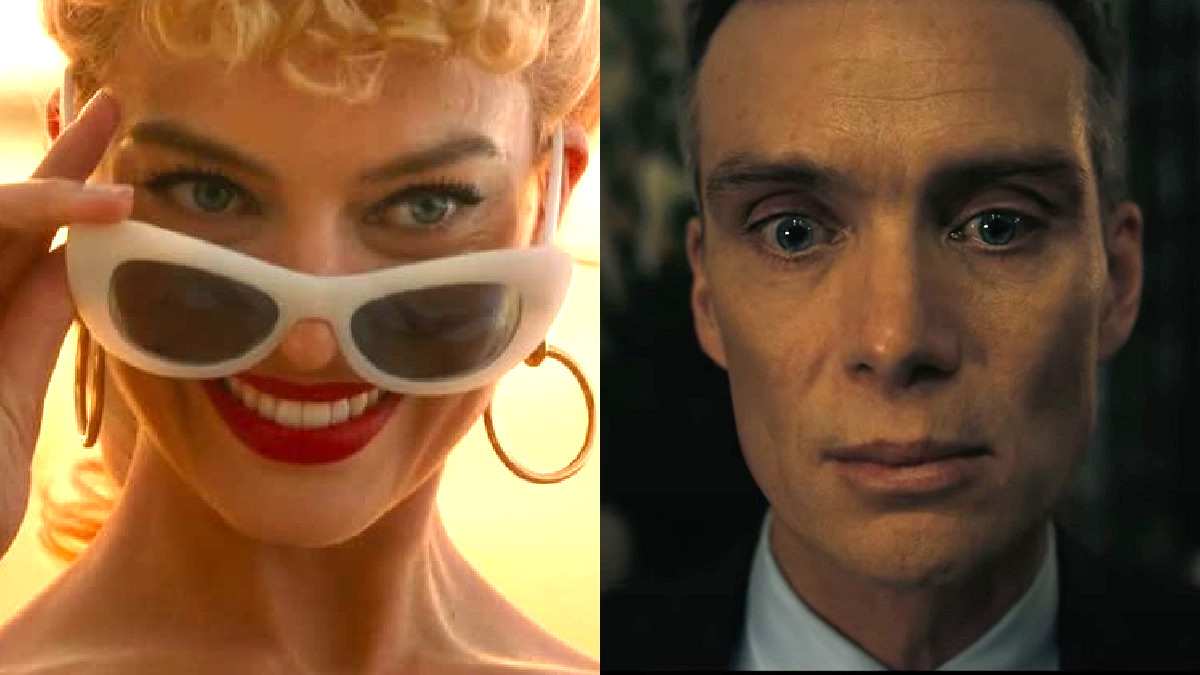J. Robert Oppenheimer’s story is one of the greatest stories that there is. The epic tale of the man who created the atomic bomb will soon be imprinted in the collective memory of the modern world. And amidst the rising Oppenheimer vs Barbie discussion, director Christopher Nolan has once again reaffirmed the unparalleled importance of Oppenheimer’s narrative that puts its significance way above Greta Gerwig’s Barbie.
Christopher Nolan is known to take on projects that push the limits of cinematic storytelling and bring unlikely heroes to the forefront. With Oppenheimer, Nolan wants to “take the audience into the mind and the experience of a person who sat at the absolute center of the largest shift in history.”
The director makes it clear, that J. Robert Oppenheimer is the most important person who ever lived. “He made the world we live in, for better or for worse.” In a recent interview with ET, the Inception director sat down to shed light on the dramatic and important story of Oppenheimer:
“A lot of people are familiar to some degree with Oppenheimer — that he was involved in the Manhattan Project, he ran the laboratory in Los Alamos during World War II, that they were in a desperate race against the Nazis to be the first to harness this power, but what happened to him afterward is equally dramatic and important and it’s not so well known. The film has a lot to do with the consequences of actions — sort of going ahead and doing these things and then having to deal with the consequences for years afterward.”
Emphasizing why he chose to tell the story of the man who invented humanity’s most dangerous weapon, Nolan quickly added,
“We live in the world that Oppenheimer created. It’s a pretty fascinating set of events. I just don’t know of a story as paradoxical, just as full of impossible situations.”

A little dig into the history tells us that in the lead-up to the Trinity test, Oppenheimer and his crew had to deal with the extremely remote prospect that when they push that button and detonate the first bomb, they would ignite the atmosphere and wipe out the entire planet. Yet, they pushed that button anyway. Nolan describes this as “an extraordinary moment in human history.” The event holds extreme importance in Nolan’s movie as he explains,
“I wanted to take the audience into that room and be there for that conversation, and then be there when that button is pushed. It’s just the most incredible moment if you think about it. The risk of it. The relationship between science, theory, intellect—the things that we can imagine—versus the practical nature of bringing these abstract ideas into the real world, dealing with them as concrete realities, and all their consequences.”
Nolan likes to pull his audience by heart and mind into the film. All his movies serve to ask questions, be it about the interior regions of the dreaming mind in Inception or about the notions of perspective and time in the philosophical sci-fi thriller Tenet, Nolan likes to tell stories that are important and full of paradoxes. In Oppenheimer, Nolan “burrows into Oppenheimer’s psyche and takes the audience on his emotional journey.”
Nolan sees films as a storytelling form designed to draw viewers into a personal experience. The kind of stuff Nolan is interested in is full of contradictions and moral conundrums, much like Oppenheimer’s story. The film cunningly asks the question of whether certain actions should have been taken while also attempting to explain to the audience why these historical figures did what they did.
In no way Oppenheimer is comparable to Greta Gerwig’s Barbie. They diverge dramatically in their subject matter and narrative approach. On one hand, we venture into ambitious territory, inside the intricate depths of the brilliant mind responsible for a world-shattering invention, while on the other hand, a whimsical fairy-tale landscape awaits us.
If we contrast the importance and need of bringing the two narratives to the silver screen, Oppenheimer’s story is the one that “must be seen to be believed.” The development of the atomic bomb was a triumph of human creativity that inspired innovation across a wide range of fields in science and technology. A fanciful world where vibrant shades of pink color the canvas will never compare to the tale behind humanity’s greatest and most perilous accomplishment.
Catch Oppenheimer and Barbie in theaters this July 21.







